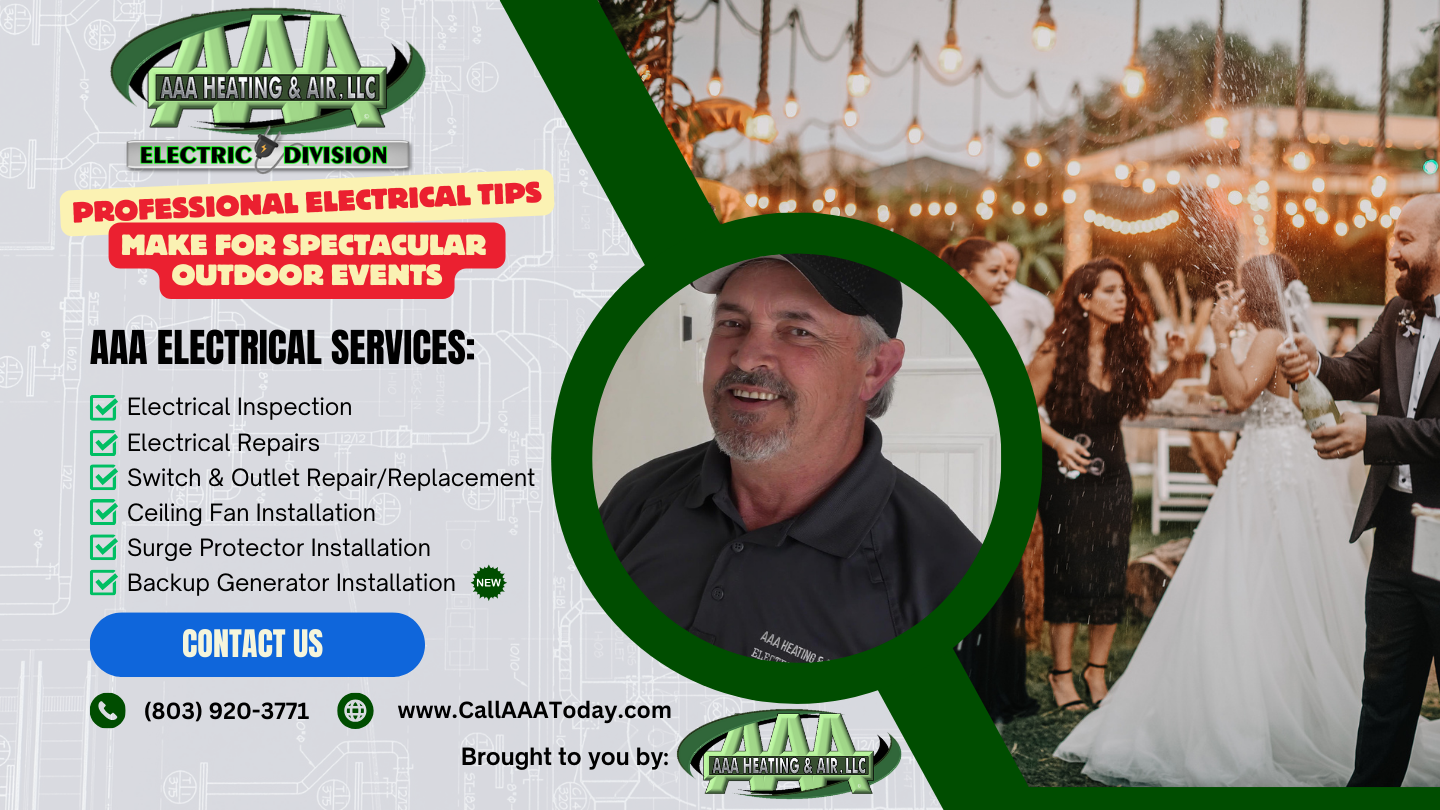Electrical Tips for Outdoor Events are a wonderful way to enjoy beautiful weather and celebrate special occasions with friends and family. Whether you’re planning a backyard barbecue, a wedding reception, or a festive holiday gathering, ensuring your event is safely and effectively powered is crucial. Here are some professional electrical tips to help you create a spectacular and safe outdoor event.
Plan Your Power Needs
Before setting up your outdoor event, consider the electrical requirements of all your equipment. This includes lighting, sound systems, cooking appliances, and any other electronic devices you’ll be using. Make a list of everything that requires power and estimate the total wattage needed. This will help you determine the number of power sources required and ensure that you don’t overload your circuits.
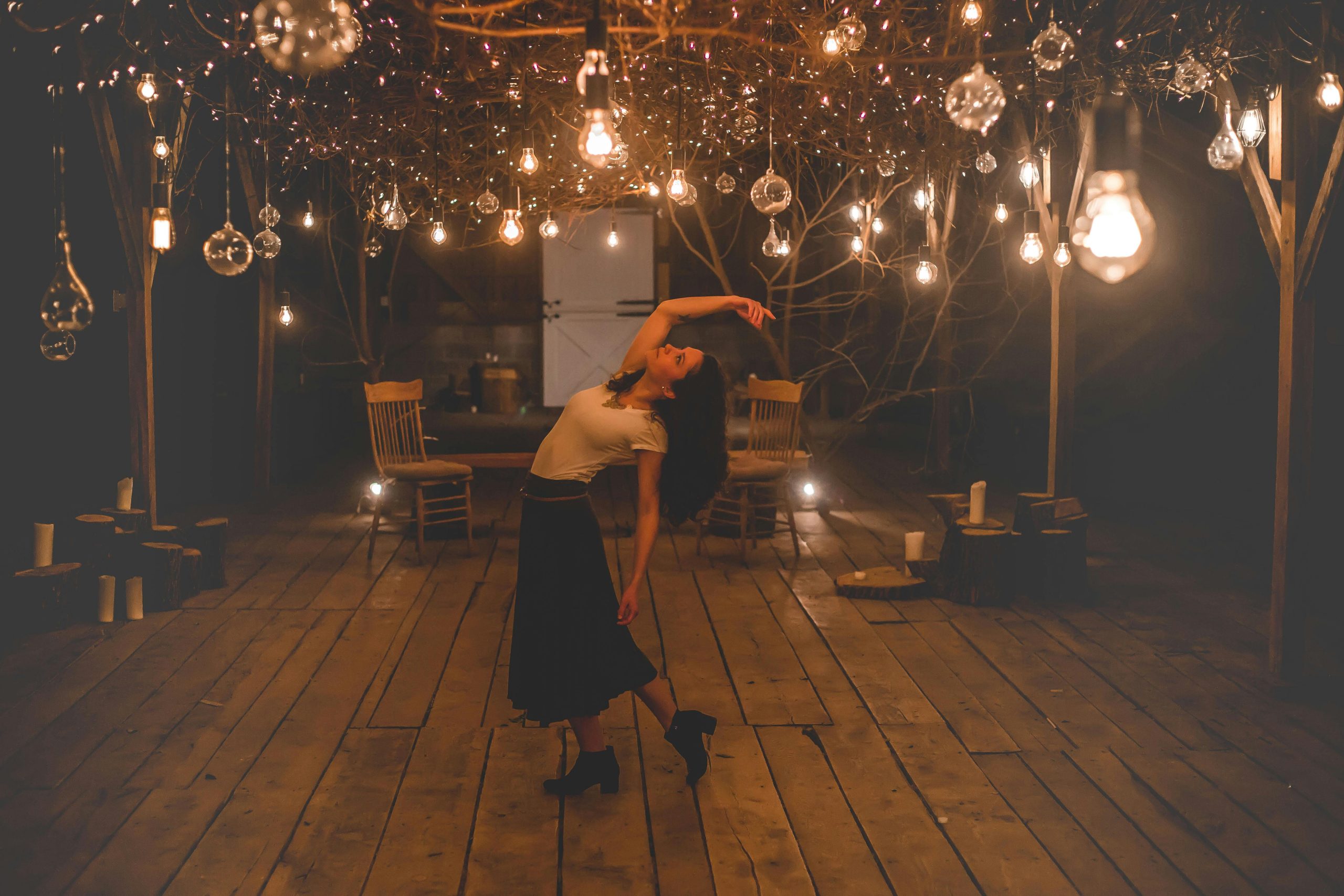
Use Outdoor-Rated Extension Cords and Power Strips
Not all extension cords and power strips are created equal. For outdoor events, it’s essential to use cords and strips that are rated for outdoor use. These are designed to withstand the elements and prevent electrical hazards. Look for products labeled “water-resistant” or “weatherproof” to ensure they can handle exposure to moisture and varying temperatures.
Protect Cords and Connections
Using these Electrical Tips for Outdoor Events to improve the safety and durability of your electrical setup is crucial, especially when it comes to cords and connections. Even if you are using outdoor-rated cords and power strips, they still require additional protection to prevent accidents and ensure a seamless event. Here’s a deeper dive into how you can effectively protect cords and connections from the elements and other potential hazards.
Use Cord Covers
Cord covers are essential for both safety and practicality. They serve two main purposes:
- Preventing Tripping Hazards: Cords running across walkways or high-traffic areas can easily become tripping hazards. Cord covers help secure the cords in place and provide a flat surface for people to walk over, significantly reducing the risk of accidents.
- Shielding from the Elements: Outdoor events expose cords to rain, dirt, and other environmental factors that can damage them. Cord covers offer a protective layer that shields cords from these elements, ensuring they remain functional and safe throughout the event.
Elevate Connections
Keeping electrical connections off the ground is another key safety measure. Ground-level connections are highly susceptible to moisture, dirt, and potential damage from foot traffic. To elevate connections:
- Use Stakes or Hangers: Stakes can be driven into the ground, and hangers can be attached to poles or other structures to lift the cords and connections off the ground. This elevation minimizes the risk of water ingress and physical damage.
- Prevent Ground Contact: Ensuring connections are not in contact with the ground prevents them from becoming wet or dirty. This is especially important in areas prone to puddles or mud.
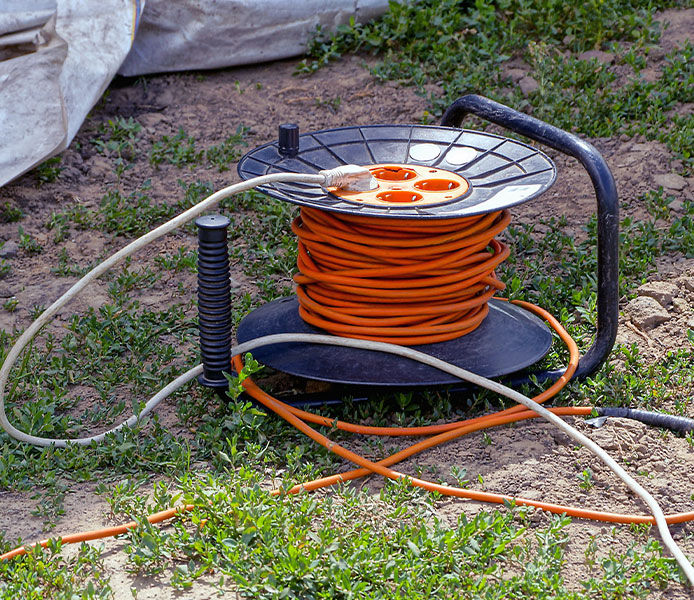
Protective Covers for Connections
Even when elevated, connections need protection from direct exposure to rain and moisture. Here are some effective methods:
- Plastic Bags: Simple yet effective, plastic bags can be used to cover connections. Secure the bag around the connection with zip ties or rubber bands to create a moisture barrier. Ensure the bag is sealed but allows for some ventilation to avoid condensation build-up inside.
- Weatherproof Covers: There are specially designed weatherproof covers available for outdoor electrical connections. These covers are more durable and provide a higher level of protection than plastic bags. They are designed to seal tightly around connections, keeping them dry and secure even in heavy rain.
Additional Tips for Cord and Connection Safety
- Inspect Before Use: Before using any cords or power strips, inspect them for signs of wear or damage. Replace any that show fraying, exposed wires, or other damage.
- Secure Cords: Use tape or cable ties to secure cords along the ground or on structures to prevent them from moving and creating hazards. Avoid using nails or staples, as they can damage the cords.
- Plan Your Layout: When planning your event layout, consider where cords will run and where connections will be placed. Try to position them in low-traffic areas to minimize the risk of accidental damage.
- Regular Checks: Throughout the event, regularly check the cords and connections to ensure they remain secure and protected. This proactive approach can help you address any issues before they become significant problems.
- Distribute Power Evenly: Avoid overloading any single outlet or circuit by distributing power evenly across multiple sources. Use different circuits to power high-wattage devices like sound systems and cooking equipment. If you’re unsure how much load a circuit can handle, consult a professional electrician to avoid the risk of tripping breakers or causing electrical fires.
Invest in Quality Lighting
Good lighting is key to setting the right ambiance for your event. Use a combination of overhead lights, string lights, and ground lights to create a well-lit and inviting space. LED lights are an excellent choice for outdoor events because they are energy-efficient, long-lasting, and come in various styles. Solar-powered lights are also a great option for areas where running electrical cords may be challenging.
Ensure Proper Grounding
Grounding is essential for electrical safety. Make sure all your outdoor outlets are grounded, and use Ground Fault Circuit Interrupter (GFCI) outlets wherever possible. GFCI outlets are designed to shut off power if they detect an imbalance, preventing electric shocks. If your outdoor outlets are not grounded or you need additional GFCI protection, consult a licensed electrician to upgrade your electrical system.
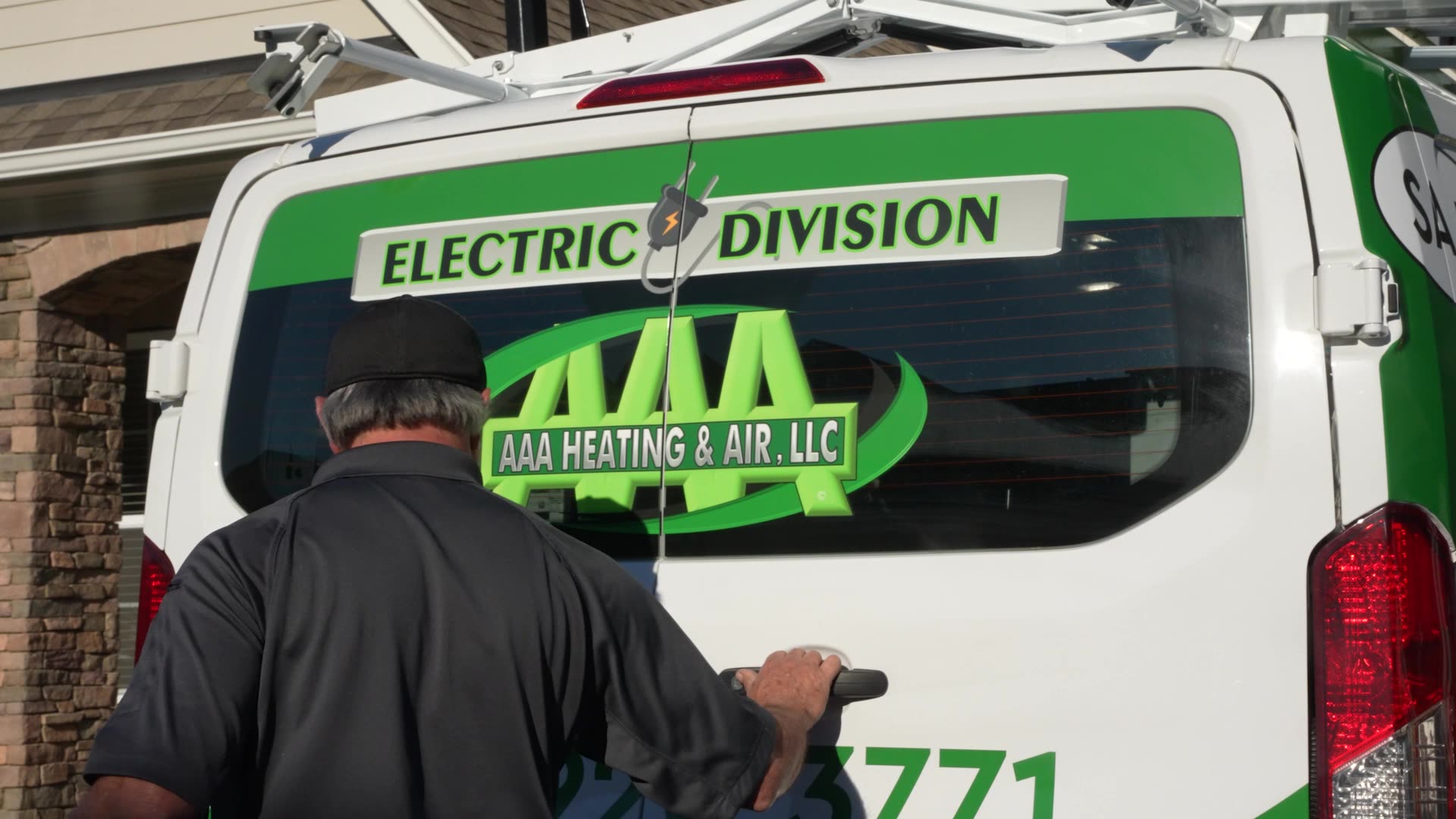
Use Generators Safely
When planning an outdoor event that requires more electrical power than your home’s system can handle, renting a generator is a practical solution. Generators provide the additional power needed to keep your event running smoothly, but they must be used correctly to ensure safety and efficiency. Here’s an expanded guide on how to use generators safely during your outdoor event.
Selecting the Right Generator
Our Electrical Tips for Outdoor events suggests renting an adequately sized generator, to do so effectively it is essential to accurately calculate your total power needs. To do so, use AAA’s GENERATOR SIZING CALCULATOR. List all the electrical equipment and devices you plan to use, and add up their wattage requirements. Choose a generator with a capacity that exceeds your total wattage to prevent overloads and allow for any additional needs that may arise during the event.
Placement and Ventilation
Proper placement of the generator is crucial for safety. Generators produce carbon monoxide (CO), a colorless and odorless gas that can be deadly if inhaled. To avoid CO buildup:
- Well-Ventilated Area: Place the generator in an open, well-ventilated area. Never operate it indoors or in enclosed spaces like tents, garages, or basements.
- Distance from Event Space: Position the generator at least 20 feet away from the main event area, windows, doors, and ventilation intakes. This distance helps ensure that CO does not drift into areas where people are gathered.
- Downwind Placement: If possible, place the generator downwind from the event space. This positioning helps keep any exhaust fumes away from guests and staff.
Using Appropriate Extension Cords
To connect your equipment to the generator:
- Heavy-Duty Cords: Use heavy-duty, outdoor-rated extension cords that can handle the power load. Look for cords labeled for outdoor use with the appropriate gauge rating for the devices you’re powering.
- Length Considerations: Ensure the cords are long enough to reach from the generator to your equipment without being stretched or strained. Avoid using multiple cords connected together, as this can increase resistance and the risk of overheating.
Proper Connection to Your Home’s Electrical System
Never plug a generator directly into your home’s electrical system without using a transfer switch. Direct connections can cause backfeeding, a dangerous situation where electricity flows back through the power lines, posing a risk to utility workers and potentially damaging your equipment.
- Transfer Switch: A transfer switch is a device that safely connects your generator to your home’s electrical system. It isolates the generator power from the utility power, preventing backfeeding. A licensed electrician should install the transfer switch to ensure compliance with local codes and safety standards.
- Manual vs. Automatic: Transfer switches can be manual or automatic. Manual switches require you to manually switch the power source from utility to generator, while automatic switches do this automatically when they detect a power outage.
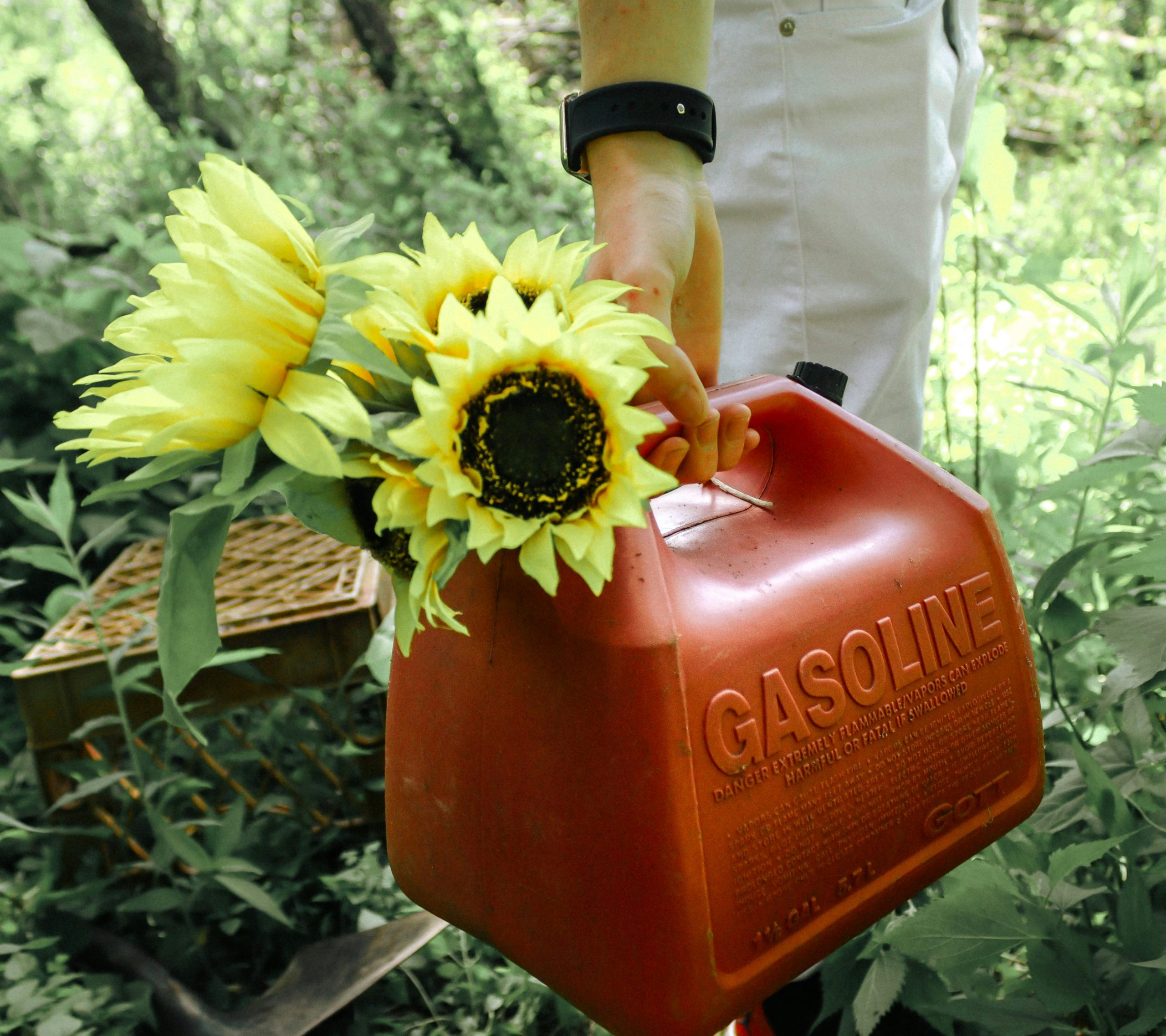
Fuel Management and Safety
Generators typically run on gasoline, propane, or diesel. Proper fuel management is essential to keep the generator running safely and efficiently.
- Fuel Storage: Store fuel in approved, labeled containers and keep them in a well-ventilated, secure area away from the generator and event space. Never store fuel indoors or near any open flames or heat sources.
- Refueling: Turn off the generator and allow it to cool before refueling. Spilling fuel on a hot generator can cause fires or explosions. Use a funnel to avoid spills and keep a fire extinguisher nearby as a precaution.
Regular Maintenance and Monitoring
- Pre-Event Check: Before the event, check the generator for any signs of wear, leaks, or damage. Ensure that it’s in good working condition and that all safety features, such as CO detectors, are functioning correctly.
- During the Event: Periodically monitor the generator during the event to ensure it’s running smoothly. Check the fuel levels, oil levels, and overall performance. Address any issues immediately to prevent interruptions or hazards.
- Post-Event Maintenance: After the event, perform routine maintenance on the generator, such as changing the oil and cleaning the air filter. Proper maintenance extends the life of the generator and ensures it’s ready for future use.
Plan for Rain and Inclement Weather
Weather can be unpredictable, so it’s important to have a plan in place for rain or other adverse conditions. Use weatherproof tents or canopies to cover electrical equipment and keep it dry. Have a backup plan to move the event indoors if the weather turns severe. Additionally, always check the weather forecast leading up to your event and adjust your setup as needed to ensure safety.
Hire a Professional Electrician
For large events or if you’re unsure about any aspect of your electrical setup, hiring a professional electrician is a wise investment. A licensed electrician can help you design a safe and efficient electrical plan, ensure proper installation, and provide troubleshooting support during the event. This peace of mind allows you to focus on enjoying the event without worrying about electrical issues.
Final Checks
Before your guests arrive, do a final walkthrough to check all electrical connections and equipment. Make sure cords are properly secured, connections are protected from moisture, and everything is functioning correctly. Test all lighting and sound systems to ensure they are working as expected. Having a checklist and taking the time for a final inspection can prevent last-minute surprises and ensure a smooth event.
These Electrical Tips for outdoor events can create unforgettable memories. By following these professional electrical tips, you can ensure your event runs more smoothly and safely, allowing you and your guests to enjoy every moment. Remember, safety is paramount, so when in doubt, consult with a professional electrician to handle your electrical needs.
For expert advice and top-notch Residential Electrical Services in the Midlands of South Carolina, call AAA Heating & Air today at (803) 889-0686 to speak with one of our local Professional Service Representatives, or click HERE to fill out our online Service Request Form 24/7. #AAAElectricalDivision #CallAAAToday

Written by: Jared M. Sewell

